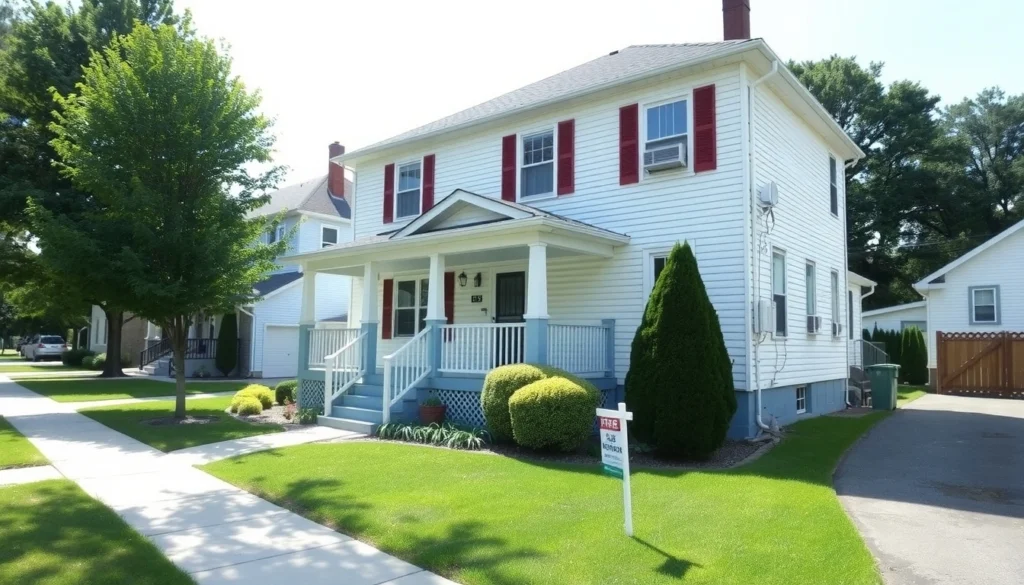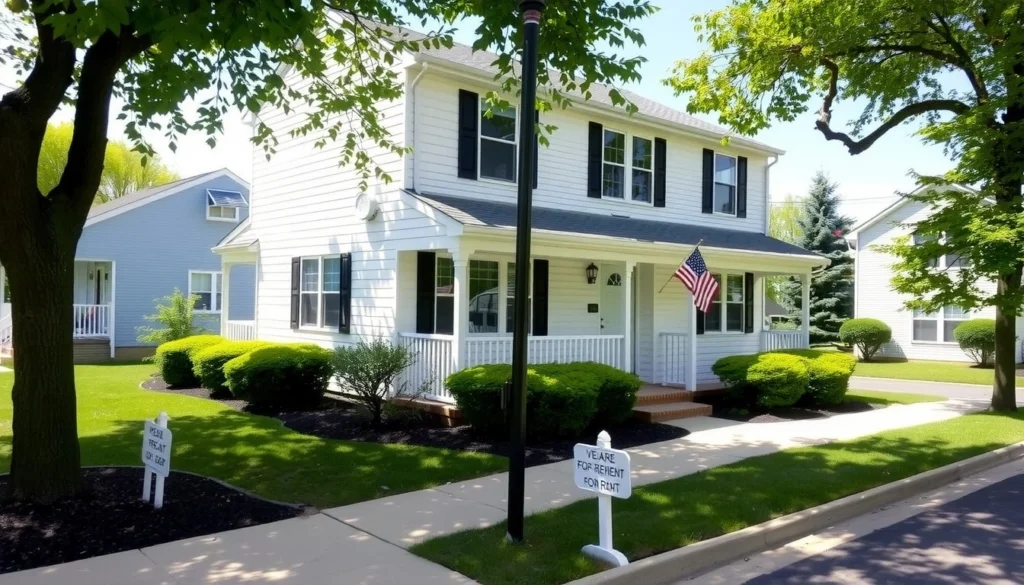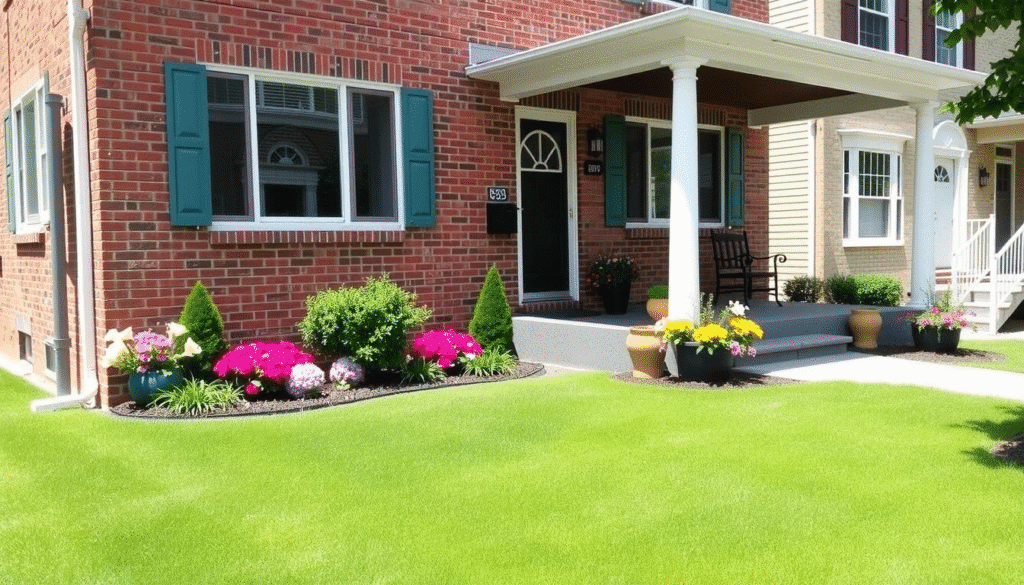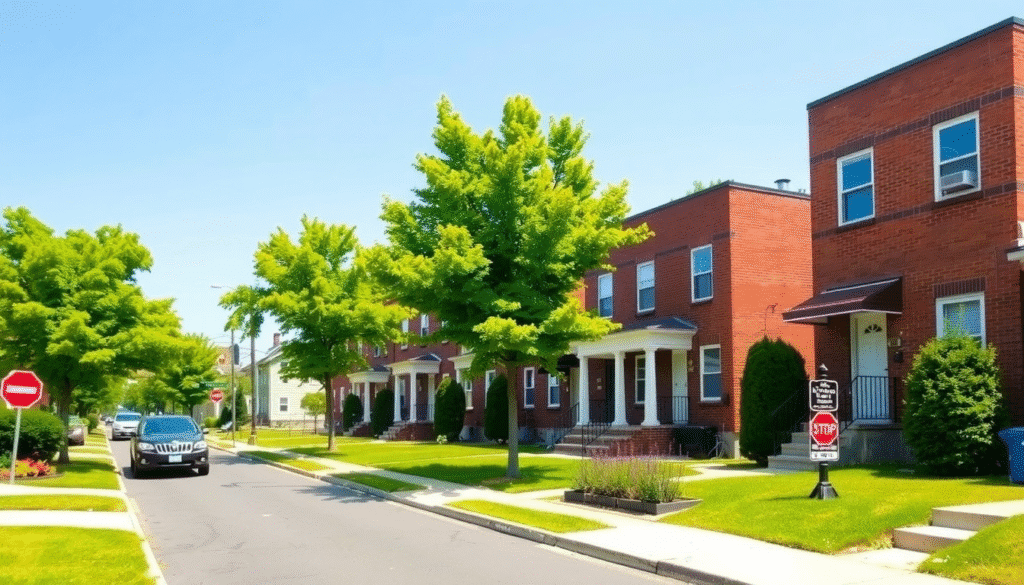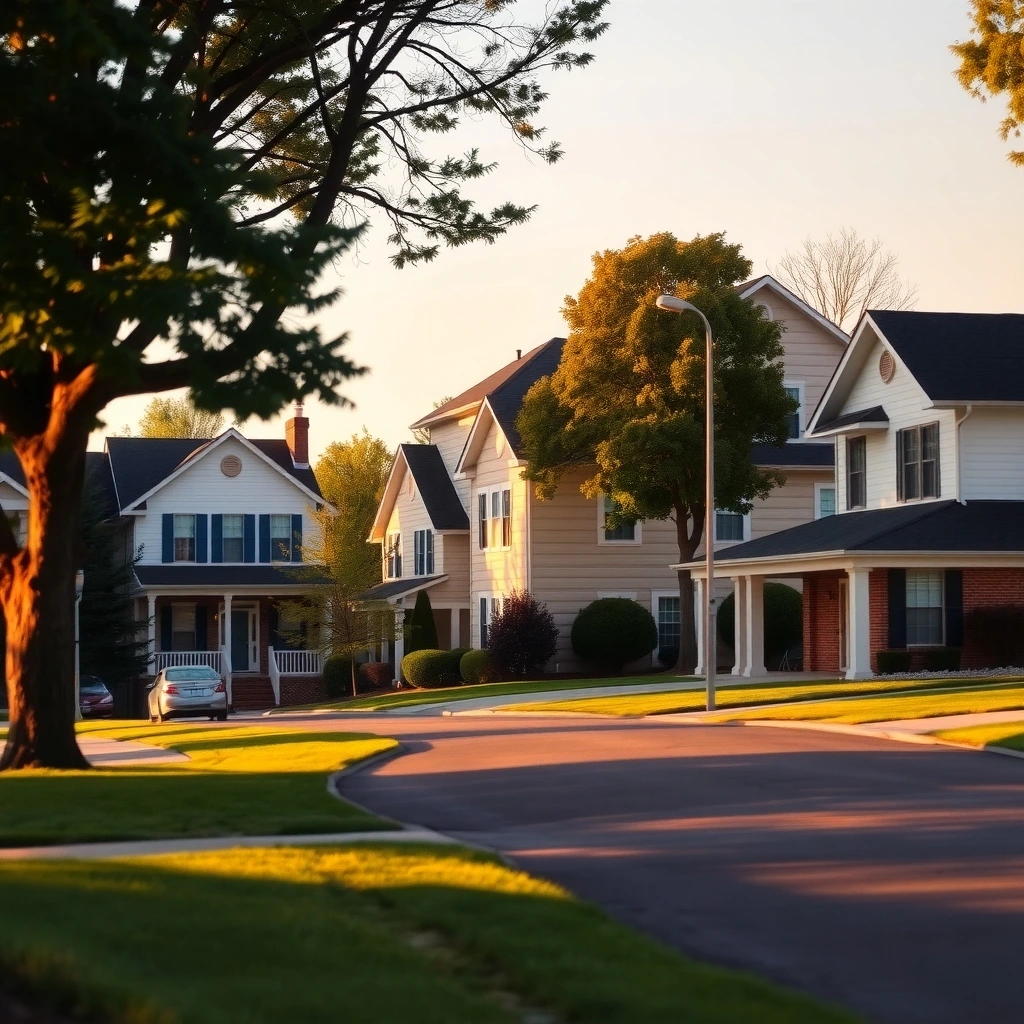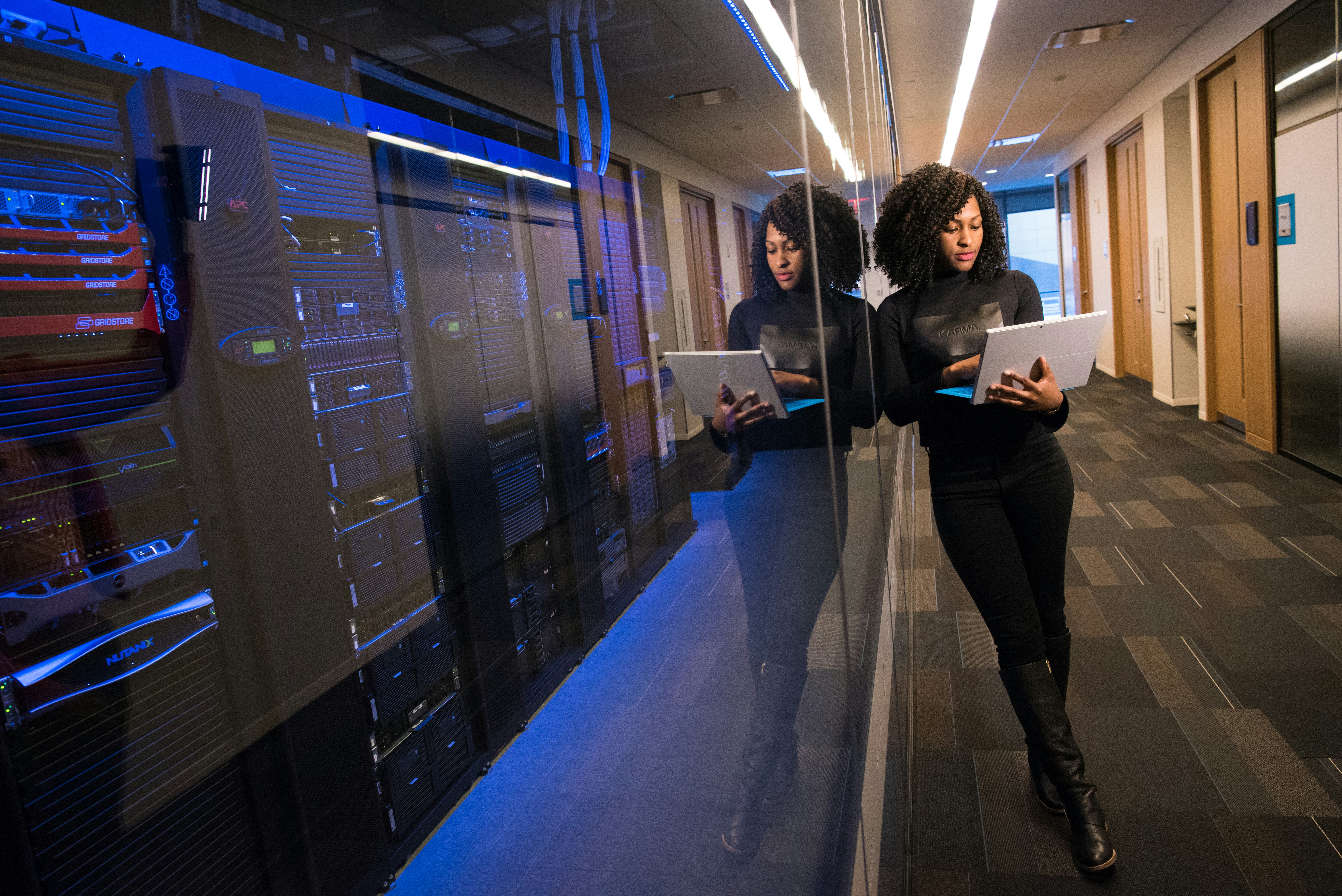Whether you’re a tenant planning your next move or a landlord preparing to lease out a property, one of the most common and crucial questions is: who pays for utilities when renting in Caldwell, NJ? Utility bills can add hundreds of dollars to a tenant’s monthly expenses and significantly affect rental profitability for landlords. Yet, many people enter rental agreements without fully understanding how utility responsibilities are divided — and that can lead to unnecessary stress, confusion, or disputes later on.
This comprehensive guide explores how utility payments are typically handled in Caldwell, New Jersey — including tenant versus landlord responsibilities, how lease agreements factor in, and what unique considerations exist due to local housing trends and legal structures. Let’s break it down section by section so you can make confident decisions, whether you’re signing a lease or offering one.
Understanding Utility Responsibilities in New Jersey
Across the state of New Jersey, there’s no universal law that states whether a landlord or tenant must pay for certain utilities. Instead, this responsibility is usually defined in the lease. However, certain regulations are in place to protect renters from being unfairly billed, especially in multi-unit housing situations.
According to the New Jersey Board of Public Utilities, landlords must provide clear disclosures when utilities are not separately metered. That means if you’re renting an apartment where utilities like water or gas are shared, the landlord is legally required to explain how your portion of the bill is calculated. This rule helps to prevent overcharges and keeps billing transparent.
Common Utilities You’ll Encounter
Here are the standard utility services tenants and landlords need to account for in most New Jersey rentals:
- Electricity – Usually tenant-paid; most homes are individually metered.
- Natural Gas – Often used for heating and cooking; generally tenant-paid.
- Water and Sewer – Can be tenant-paid, but often included in rent in multi-unit buildings.
- Trash and Recycling – Sometimes billed separately or handled by the town.
- Internet and Cable – Almost always the tenant’s responsibility.
It’s important for tenants to factor these costs into their rental budget. For landlords, offering to cover select utilities can make a property more attractive, but it also means they’ll need to calculate higher rent to cover those costs.
Specifics for Caldwell, NJ
Caldwell, located in Essex County, is known for its tight-knit neighborhoods, tree-lined streets, and a mix of historic homes and modern apartments. Because of its suburban appeal and older housing stock, utility setups can vary widely depending on the age and layout of the property.
While the borough of Caldwell does not have unique municipal codes regarding utility payments, local rental practices still reflect a blend of state standards and landlord preferences. In older multi-family homes, it’s not unusual for landlords to keep certain utilities in their name and bill tenants a flat fee — a practice that requires transparency to stay within legal limits.
Rent Control Considerations
Although Caldwell is not a rent-controlled municipality like Jersey City or Hoboken, tenants and landlords should still be aware of how local market conditions influence rental pricing and utility arrangements. In highly competitive markets, landlords may include utilities as a value-added incentive to attract renters. However, such arrangements should always be formalized in the lease with clear terms.
Common Utility Arrangements
1. Tenant-Paid Utilities
This is the most straightforward and common setup, especially in single-family homes or newly constructed apartments. In this case, tenants are responsible for setting up their own accounts with utility providers such as PSE&G or JCP&L. Bills are issued directly to the tenant and must be paid monthly.
The benefit for tenants is having control over their own usage and expenses. However, costs can fluctuate seasonally — electricity and gas bills often spike in winter and summer months due to heating and cooling. Tenants should also ask landlords if there are any outstanding bills or previous tenant issues before move-in to avoid service disruptions.
2. Landlord-Paid Utilities
Landlords may opt to include utilities in the rent as a convenience or selling point. This is more common in apartments where units are not separately metered or in student housing situations. While this arrangement simplifies billing, it can lead to higher fixed rent prices, as landlords must estimate and cover average usage costs.
For landlords, it’s essential to monitor usage and update lease terms if utility costs rise significantly. For tenants, make sure you understand exactly which utilities are included — and which aren’t — before signing the lease.
3. Shared Utilities
In duplexes or homes converted into multiple units, tenants may share utility services. In this case, landlords typically divide the bill based on unit square footage, number of residents, or a flat-rate system.
Shared utilities can be cost-effective but may also cause friction between neighbors if usage isn’t fairly divided. Always ask how the landlord calculates the amount owed and request a copy of the master bill for transparency.
Lease Agreement Essentials
Your lease agreement is the ultimate reference point for any utility-related responsibilities. In Caldwell — and across New Jersey — courts will enforce the written lease terms, so clarity is essential. Vague or missing language around utilities can leave tenants with unexpected bills or open landlords to disputes they could have avoided.
Checklist for Tenants and Landlords
- Specify Each Utility: Clearly list which utilities are the tenant’s responsibility and which the landlord covers.
- Include Names: Identify utilities by name — e.g., “tenant responsible for electric and gas” rather than “tenant pays utilities.”
- Define Flat Fees: If using a flat-rate system for shared utilities, explain the basis for the rate.
- Billing Timeline: Note when utility payments are due and any penalties for late payment.
Clear utility clauses help avoid miscommunication and ensure that both parties understand their financial obligations from day one. Tenants should never assume — always confirm what’s included and what’s not.
Affordable Housing Considerations
For tenants in affordable housing or Section 8 programs, utility responsibilities are governed by subsidy rules and unit-specific calculations. Caldwell has several such housing programs, and these often include predetermined utility allowances based on unit type and family size.
In these cases, tenants may receive a rent reduction or voucher that accounts for expected utility expenses. If actual utility usage exceeds the allowance, the tenant may be responsible for the difference. It’s critical to track usage and budget carefully, especially during peak heating or cooling seasons.
Breakdown of Typical Utility Costs in Caldwell, NJ
Utility expenses can vary significantly based on property type, season, and energy efficiency. To help tenants and landlords alike, here’s a breakdown of average monthly utility costs in Caldwell:
- Electricity: $90 – $150 (higher in summer with air conditioning)
- Gas (Heating/Cooking): $60 – $120 (heaviest in winter)
- Water and Sewer: $30 – $75 (varies by number of occupants)
- Trash/Recycling: Often included in municipal services or rent
- Internet and Cable: $50 – $120 depending on speed and provider
Tenants should ask landlords whether utilities are paid directly to providers or bundled into rent. For budgeting purposes, request a 12-month average from the utility provider or landlord.
Smart Utility Management Tools for Renters
Managing utilities doesn’t need to be overwhelming. In fact, several digital tools and apps can help tenants track their usage, split bills with roommates, or monitor costs in real time. These tools are especially useful in shared housing or roommate situations where fairness and transparency are key.
Recommended Tools:
- Splitwise: Great for dividing bills and tracking shared costs.
- Mint: Helps manage overall budget, including recurring utility payments.
- EnergyHub or Sense: Track energy usage down to individual appliances (if supported by your utility provider).
Using these tools, renters in Caldwell can gain greater control over their household spending and avoid unexpected surprises.
How Utility Responsibilities Affect Rental Prices
Whether utilities are included in rent or billed separately can significantly impact both the cost and perceived value of a rental unit. In Caldwell, many landlords factor basic utilities like water and trash into the rent, but electric, gas, and internet are typically tenant-paid.
Including Utilities in Rent: This can make budgeting easier for tenants and attract renters looking for simplicity. However, rent is usually set higher to compensate. Tenants should always calculate the true cost difference between utility-included and utility-excluded units.
Separating Utilities from Rent: This method offers landlords protection from fluctuating energy prices. Tenants benefit from paying only for what they use but must monitor and manage those expenses carefully.
Ultimately, how utilities are handled affects rent pricing, tenant satisfaction, and lease negotiations — so both sides should be proactive in discussing this early in the rental process.
Tips for Tenants
If you’re a tenant searching for a rental property in Caldwell, here are some essential tips to help navigate utility responsibilities and avoid future disputes:
1. Ask the Right Questions
- Are utilities included in the rent?
- Which utilities are my responsibility?
- Is there a flat fee or actual usage billing?
- Can I see previous utility bills to estimate average costs?
2. Review the Lease Carefully
Never sign a lease without a written agreement about utility responsibilities. If it’s not clearly stated, ask for clarification in writing. Avoid vague phrases like “some utilities may be included.”
3. Budget for Seasonal Changes
Utility bills often spike in winter (gas) and summer (electricity). Plan accordingly — especially if you’re responsible for your own heating and cooling.
Tips for Landlords
As a landlord in Caldwell, you can set your rentals apart and avoid confusion by being transparent and structured in how utilities are managed. Here’s how:
1. Decide What’s Included
Determine which utilities you’re willing to cover and which ones tenants will handle. Water, sewer, and trash are often bundled into rent, while electricity and gas are usually passed to the tenant.
2. Update the Lease
Your lease agreement should spell out exactly who pays for what. Specify billing methods for shared meters and how late payments are handled. This protects you legally and builds trust with your tenants.
3. Provide Usage Guidance
Help tenants by offering average utility costs or usage patterns. Especially in older homes or shared spaces, educating tenants can prevent complaints and inefficiencies later on.
Transparent utility arrangements make for happier tenants, fewer disputes, and better property reviews — all of which help maintain high occupancy and property value.
Frequently Asked Questions (FAQs)
Who pays for water and sewer in Caldwell, NJ rentals?
This varies by property. In many multi-family homes, the landlord covers water and sewer. In single-family homes, tenants usually pay directly. Always check your lease agreement for details.
Are utilities usually included in rent-controlled apartments?
Caldwell does not currently enforce rent control, but in towns that do, landlords may be limited in how much they can charge for utilities or pass those increases onto tenants. It depends on local regulations and the rental history of the unit.
What happens if a tenant doesn’t pay their utility bills?
If utilities are in the tenant’s name, nonpayment can lead to service disconnection and damage to their credit score. If in the landlord’s name, nonpayment of utility fees may be considered a lease violation, leading to warnings or eviction proceedings depending on the lease terms.
Can a landlord charge a flat fee for utilities?
Yes, but it must be disclosed clearly in the lease. Flat fees should be fair and based on reasonable estimates of actual usage, especially when there’s no separate metering.
Conclusion
Recap of Key Points
Determining who pays utilities in a rental property is a critical part of understanding the true cost of renting. In Caldwell, NJ, utility responsibilities vary depending on the property type, lease terms, and sometimes even local norms. While tenants often cover utilities like electricity and gas, landlords may include others such as water, sewer, or trash collection in the rent. The key is transparency — and ensuring these details are always outlined in writing.
Final Thoughts for Tenants and Landlords
For tenants, asking the right questions before signing a lease can prevent surprise expenses. For landlords, being upfront about utility billing builds trust and protects your rental business legally and financially. Whether you’re new to renting or experienced, understanding how utilities are handled helps both sides avoid conflict and budget with confidence.
Call to Action
Encouragement to Consult Lease Agreements
Before you move forward with any rental property in Caldwell, take time to thoroughly review the lease. Ask for clarification on any vague utility language, and don’t hesitate to negotiate if something feels unclear. It’s far easier to resolve questions before you move in than to face confusion (or unpaid bills) later.
Contact Information for Further Assistance
If you’re unsure about utility responsibilities or need help reviewing or creating a lease agreement, reach out to the experts at Rent Shield Property Management. Our team is deeply familiar with Caldwell’s rental market and can help both tenants and landlords make informed, confident decisions.
Breakdown of Typical Utility Costs in Caldwell, NJ
Average Monthly Utility Costs
Here’s what tenants can expect to pay on average in Caldwell, NJ, for standard utilities. Keep in mind these figures can vary depending on property size, energy efficiency, and number of occupants:
- Electricity: $90 – $150
- Gas (heat/cooking): $60 – $120
- Water & Sewer: $30 – $75
- Trash & Recycling: Often included in rent or covered by the municipality
- Internet & Cable: $50 – $120 depending on package
Seasonal Fluctuations and Budgeting Tips
Utility costs can spike dramatically during hot summers and cold winters, especially if heating and cooling systems are older. Tenants should ask landlords about insulation, the age of HVAC systems, and average past bills. Budgeting an extra 10–20% for seasonal utility swings is a smart practice.
Smart Utility Management Tools for Renters
Apps and Services to Track and Split Utilities
Today’s renters have access to powerful tools that can make managing utilities much easier. If you’re sharing a house or apartment, or simply want to monitor your consumption, consider these digital options:
- Splitwise: Ideal for roommates splitting electric, gas, or internet bills.
- Mint or YNAB: Budget apps that let you set goals and track payments.
- Utility providers’ apps: Many offer real-time tracking and auto-pay options.
Benefits of Energy-Efficient Appliances and Smart Thermostats
Smart thermostats like Nest or Ecobee can save renters up to 15% on heating and cooling costs annually. If you’re renting long-term, talk to your landlord about upgrading older appliances or installing efficiency-focused tech. Energy-efficient LED bulbs, faucet aerators, and programmable power strips are low-cost changes with measurable savings.
How Utility Responsibilities Affect Rental Prices
Rent Adjustments Based on Utility Inclusion
When landlords choose to include utilities in the rent, they typically increase the base rental rate to account for these expenses. This flat-rate convenience can appeal to tenants who prefer predictability. However, it also means you may pay more than you use — or benefit if your usage is higher than average.
Pros and Cons of All-Inclusive vs. Tenant-Paid Models
- All-Inclusive: Easy to budget, fewer bills, ideal for short-term renters. Downside: little control over utility costs or conservation incentives.
- Tenant-Paid: More transparent and usage-based, often more affordable if you’re energy conscious. Downside: budgeting becomes more complex.
Each arrangement has its benefits, but the key is that tenants know what to expect, and landlords set expectations clearly in the lease. Ultimately, communication and documentation are what keep rental relationships running smoothly.

